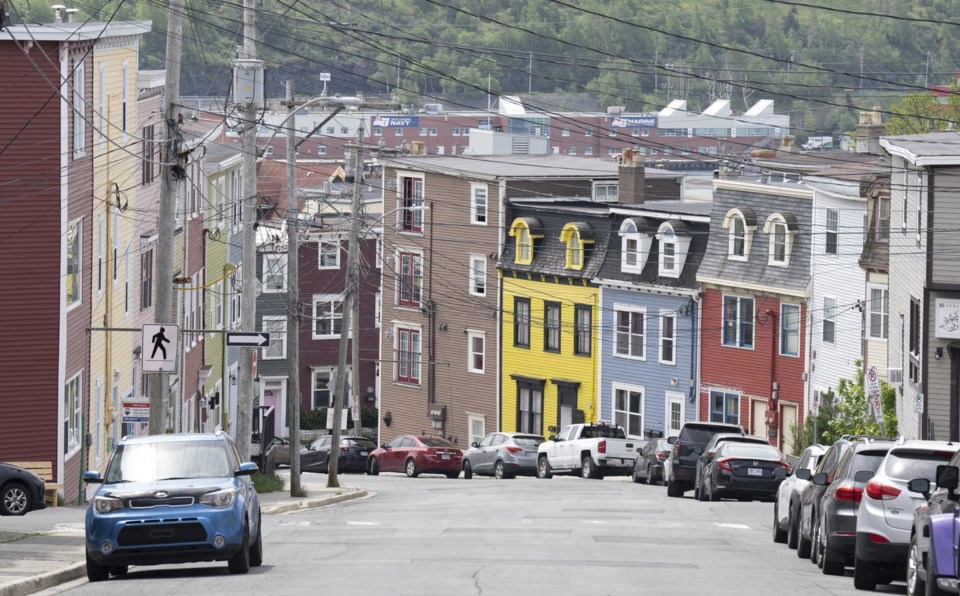ST. JOHN'S, N.L. — Concerns over a lack of parking that led councillors in St. John's, N.L., to axe a proposal for affordable housing last week are part of a larger trend that is halting much-needed development across the country, experts say.
Whether they're about issues like parking, traffic, sunlight or neighbourhood character, "not in my backyard" — or NIMBY — excuses mask the reality that people don't want change in their communities, said Ray Sullivan, executive director of the Canadian Housing and Renewal Association.
But change is necessary to solve the housing and homelessness problems gripping cities, including Canada's easternmost capital, and people need to accept that, Sullivan said in a recent interview.
"This is a rebalancing that's happening across the country right now," he said. "The idea that your right to live in a neighbourhood that's frozen in time is more important than someone else's rights to have a home? This needs to shift."
On Tuesday, St. John's council voted 7-2 against a 96-unit apartment complex in the Rabbittown area; city staff had recommended the development be accepted.
The plan for the building included 40 "micro" units without parking spaces, aimed at people who don't have cars, said Coun. Maggie Burton, who voted in favour of the project. The smaller "affordable rate" units would rent for lower than the larger apartments with parking.
About 150 nearby residents signed a petition against the building, saying parking had to be included for all the units and listing traffic and congestion among their concerns. The petition convinced several councillors, who cited it before voting against the project.
"We do allow micro units with no parking, but there was a sense that there couldn't possibly be people who would choose to live without a car," Burton said in an interview.
"We have to accept that people can and should choose to live without a personal vehicle, and that we have to invest in alternative transportation modes that aren't just single-use vehicles," she added. "Car-brain has got to go."
She agreed that the objections were examples of NIMBYism. "People don't want any apartments in their neighbourhoods," Burton said.
Scott Hamilton, a city councillor in Cambridge, Ont., said he wished people would consider what new neighbours could bring to their communities.
"When people see a housing proposal, they just see the negative of the built form without understanding the incredible positives that can come from new residents that are excited to build a community because they finally have a roof over their head," he said in an interview.
He had proposed the City of Cambridge rent some of its parking lot space to developers for affordable housing, but the plan was shot down in late 2023. The city owns plenty of lots, and his proposal would have permitted housing to sit above the parking — only a few spaces would be lost, he said. But some colleagues worried the parking lost would be too much.
City staff recently recommended four affordable housing proposals and designs on municipal land, Hamilton said. Two were rejected completely, and one was made much smaller. The opposition included concerns about parking and change in the neighbourhood, and sometimes it included unfounded stereotypes about affordable housing itself — for example, that it would attract people involved in crime, he said.
"I understand completely that the change is very difficult, especially for someone that's lived on a property for decades and decades, and all of a sudden there's a housing proposal that's going to change the look and feel of the property," Hamilton said.
But solving a housing crisis will require new and different thinking, he said.
NIMBYism has long caused costly delays in approving new, denser developments in cities such as Toronto and Vancouver, ultimately making projects more expensive, said Aled ab Iorwerth, deputy chief economist with the Canada Mortgage and Housing Corporation.
"So if it's happening in St. John's, the concern is that it's quite widespread (around the country)," he said in an interview.
Residents should consider that all types of people need housing right now, and the people who will live in new apartments in their neighbourhoods will be teachers, hair stylists, baristas, students or firefighters — people who will bring new life and economic activity to the area, the economist said.
"We need more social and affordable housing, we need more regular rental and apartment structures, so that everybody can contribute to the local economy," he said.
This report by The Canadian Press was first published Feb. 2, 2025.
Sarah Smellie, The Canadian Press




